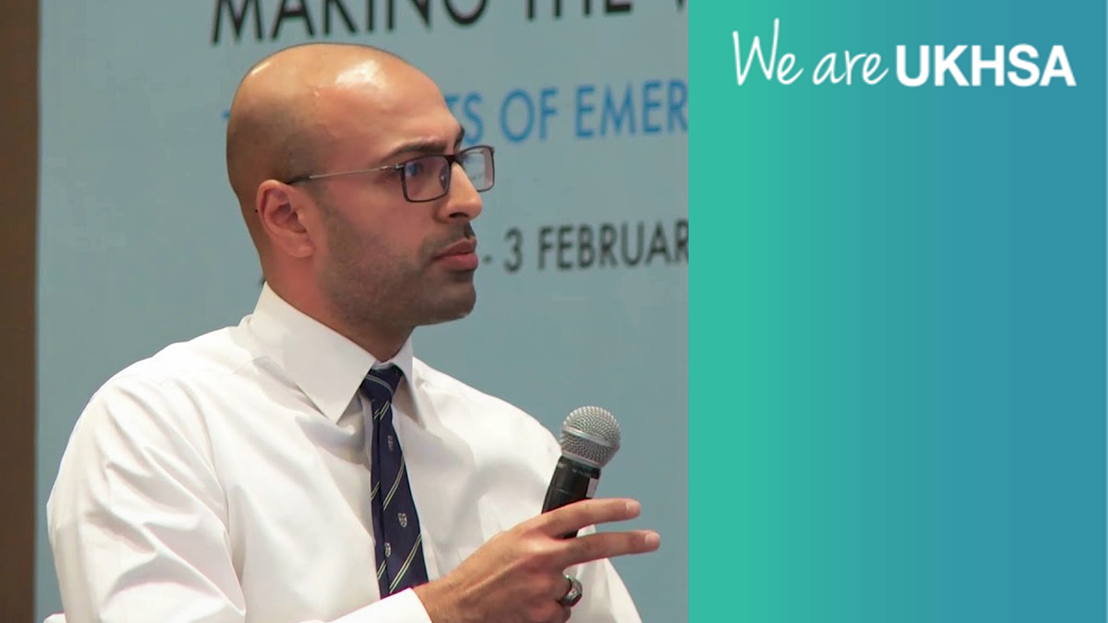
This article, “A One Health approach to global health security” By Osman Dar was originally shared on UKHSA channels and reposted here with Dr Osman Dar’s and UKHSA permission.
One Health is an integrated, unifying approach that aims to sustainably balance and optimise the health of people, animals and ecosystems, ultimately leading to health benefits and a greater understanding of risks and trade-offs that could not be achieved if the different sectors worked alone. It has been widely touted over the last two decades as an approach to address a whole range of complex cross-societal and cross-sectoral health challenges from antimicrobial resistance, emerging infections and pandemic control, to sustainable food systems and eco-centred rural and urban development. But what evidence exists around application of the approach and how do we move from theory to practice?
The Lancet Series on One Health and Global Health Security with significant contributions from UKHSA staff including members of our Global Operations team, attempts to answer that question; blending the history, science and theory of One Health, with the evidence base and examples of its application in real-world settings.
The Series posits that reducing inequalities between sectors and societies, and establishing a better balance between humans, animals and the ecosystems they co-habit, are key to sustainably improving global health security.
As we approach another set of Executive Board meetings at the World Health Organization and a World Health Assembly later in May this year, One Health issues addressed across the Series remain global health priorities. From counterfeit and substandard medicines and equitable access to quality assured medical technologies like influenza vaccine, to improving global health governance and cross-sectoral collaboration, the Executive Board and World Health Assembly agendas are peppered with One Health issues highlighted by this Series.
The Series also explores the intimate links between climate change, One Health and the inequalities and power dynamics of nations and human societies. At the recently concluded COP 27, United Nations Climate Change summit, WHO Director-General Dr Tedros re-iterated the central importance of One Health stating: “The COVID-19 pandemic has taught all of us many painful lessons. One of the most important is that we can only truly make the world safer with a One Health approach that addresses the intimate links between the health of humans, animals and our environment – and especially by addressing the existential threat of climate change.”
One health and health equity
Health security and health equity are two sides of the same coin and a One Health approach helps us ensure we achieve both. Yet the enduring inequalities and power imbalances within and between countries will have to be addressed for meaningful, sustainable change on One Health and global health security.
At COP27, it was only after lengthy and at times fractious discussions that wealthy countries committed to a loss and damage fund for poorer countries, albeit, one that many commentators believe is inadequate. A few weeks later at the UN Biodiversity COP 15, where a landmark UN agreement has been signed that may fundamentally help address some of the environmental drivers of disease emergence, once again, differences flared between rich and poor, powerful and weak. Only after a series of protracted plenaries and at times angry interventions, was a consensus finally reached. For the poor and destitute, the lesson appears to be stand up for yourselves, organise and collaborate - and for the wealthy and powerful – loosen your grip on the levers of power before they’re wrenched away – ultimately by the planet itself.

By Osman Dar, CRF-Global Public Health Consultant with UKHSA Global Operations/IHR Strengthening Project